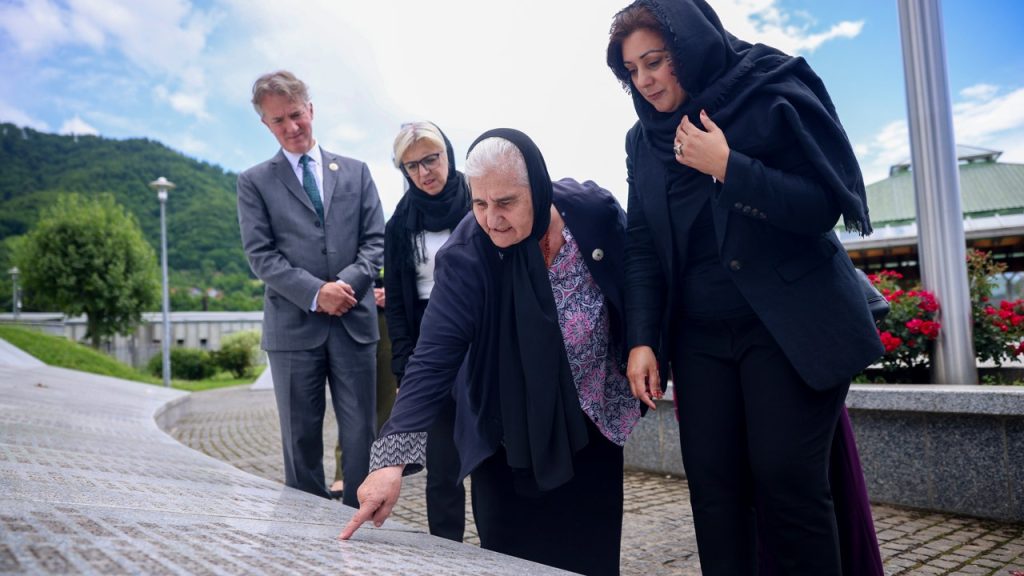The 1995 genocide of more than 8,000 Bosnian Muslims by Bosnian Serbs was commemorated with a resolution approved by the United Nations. Despite the resolution not specifically naming Serbs as the culprits, many Serbs fear being branded as supporters of the mass killing. The vote in the General Assembly reflected divided opinions, with 84 in favor, 19 against, and 68 abstaining due to concerns about reconciliation efforts in Bosnia. The resolution designates July 11 as the “International Day of Reflection and Commemoration of the 1995 Genocide in Srebrenica.”
On July 11, 1995, Bosnian Serbs attacked a U.N.-protected safe area in Srebrenica, separating and slaughtering at least 8,000 Muslim Bosniak men and boys. This act was the climax of Bosnia’s 1992-95 war, which erupted after the breakup of Yugoslavia and caused tensions between Bosnian Serbs, Croats, and Muslim Bosniaks. Despite Serbia and Bosnian Serbs denying the genocide, two U.N. courts have established it. Bosnian Serb president Milorad Dodik strongly opposed the resolution and suggested his government would secede from Bosnia if it passed.
Dodik and other officials have faced U.S. and British sanctions for jeopardizing the peace plan that ended the Bosnian war. The resolution reaffirmed the General Assembly’s commitment to maintaining stability and fostering unity in Bosnia and included the International Court of Justice’s determination in 2007 that the acts in Srebrenica constituted genocide. While supporters believe it is a moral and legal imperative to commemorate the victims of Srebrenica, some have criticized the resolution citing ongoing conflicts such as Israel’s actions in Gaza as a distraction.
Germany, along with Rwanda, sponsored the resolution, drawing attention to the need for a separate U.N. day to commemorate the Srebrenica genocide, similar to the official U.N. commemoration of the 1994 Rwanda genocide. Menachem Rosensaft, the son of Holocaust survivors, emphasized the importance of commemorating the manner of the deaths of the Muslim Bosniaks who were abandoned by Dutch U.N. peacekeepers in the safe area. Despite the controversy surrounding the resolution and concerns about its impact on reconciliation efforts, supporters believe it is crucial to acknowledge and remember the tragic events in Srebrenica.
The resolution faced intense lobbying against it by Bosnian Serb president Milorad Dodik and Serbian president Aleksandar Vucic, both of whom feared implications on their communities. The final draft of the resolution solidified the commitment to unity and stability in Bosnia and Herzegovina, while recognizing the genocide in Srebrenica and punishing those who have endangered the peace process in Bosnia. The establishment of an official day of remembrance for the Srebrenica genocide is intended to honor the victims and ensure that such atrocities are not forgotten, despite the challenges and controversies surrounding the process.


